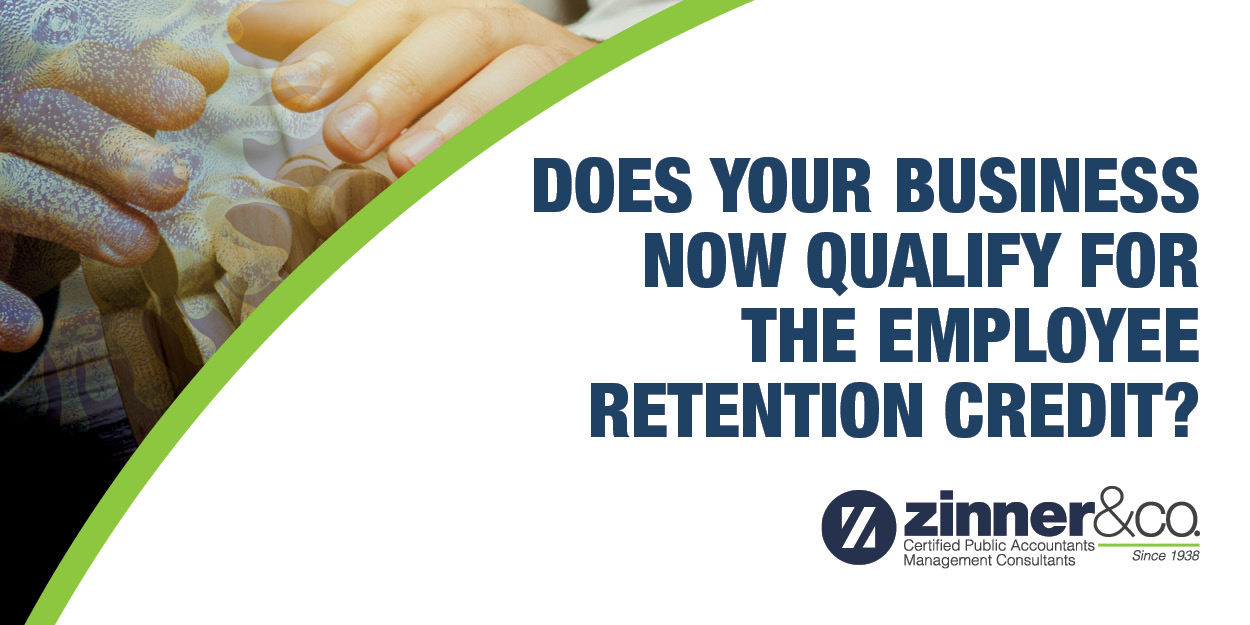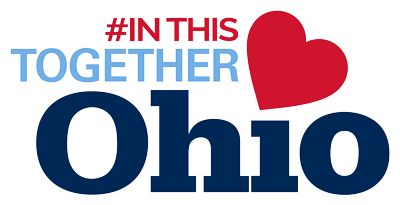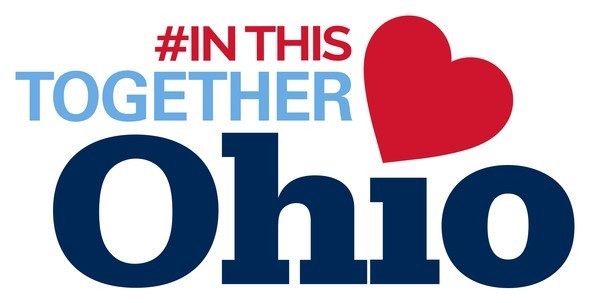The Small Business Administration recently announced changes to its COVID-19 Economic Injury Disaster Loan program.
Senate Votes to Extend PPP Through May 31
Zinner & Co. Tax Team The CARES Act , Paycheck Protection Program , pppOn Thursday, the Senate voted to extend the Paycheck Protection Program for two months.
A week before the Small Business Administration’s PPP was slated to expire, senators voted 92 to 7 to pass the PPP Extension Act of 2021.
Not only does the legislation extend the program to May 31 from the initial March 31 deadline, but it gives the SBA an additional 30 days to process loans.
The second round of Paycheck Protection Program funding has been open for two weeks and it appears funds are going to the intended recipients.
Does your Business now Qualify for the Employee Retention Credit?
Zinner & Co. Tax Team U.S. Small Business Administration , SBA , Paycheck Protection Program , pppThe Employee Retention Credit is part of the reconstituted Paycheck Protection Program and is designed to help businesses who have been adversely affected by the COVID-19 pandemic retain their employees.
Paycheck Protection Program Loan Forgiveness - But at what Cost?
Robin Baum, CPA, Managing Partner Robin Baum , Coronavirus , COVID-19 , Paycheck Protection ProgramOver the past few weeks, some of our local commercial lenders have slowly begun to open their online portals to allow those businesses who received Paycheck Protection Program (PPP) Loans to file their applications to obtain forgiveness of the debt related to qualified expenses.
While the loan application process was a heated fury of business owners rushing to obtain the much needed funds so that they could continue to employ and pay their employees, retain health insurance coverage and pay their rent, the loan forgiveness process seems to be occurring at much less of an accelerated rate. Although credit should go to the Small Business Administration for issuing some guidance to the lenders who have extended these loans, not all the related questions have been answered.
Our PPP Funds Have Been Spent. Now What?
Zinner & Co. Zinner & Co. , Paycheck Protection Program , pppBloomberg News recently reported that according to a new survey, at least one in ten small businesses in the U.S. are expecting to lay off workers once their fiscal relief funds run out.
In another survey done by the National Federation of Independent Business, 14 percent of companies, who received a loan under the Paycheck Protection Program, anticipate having to reduce their workforce after using the loan. Among those companies, half expect to dismiss one to two employees, and 12 percent say they will likely lay off at least ten people.
Some Front Line Workers Have Concerns Over PPP Rather Than PPE
Robin Baum, CPA, Managing Partner Robin Baum , Zinner & Co. , Coronavirus , COVID-19 , The CARES Act , Paycheck Protection Program , first respondersHaving been a CPA for over 30 years, I can honestly say that the last three months of my career have been some of the most challenging, but also some of the most rewarding.
The coronavirus pandemic has changed the way that all of us work and also how we see the world. For many years, I cherished the role of being my clients “most trusted advisor.” This meant I provided financial counsel related to income and estate tax matters and assisted in management consulting projects to help business owners maximize their profits. While all of these types of engagements brought value to the business owner, little did I know 2020 would transform my role to becoming a “front line” worker.
Tax Planning for the Paycheck Protection Program
Zinner & Co. Tax Team Zinner & Co. , Coronavirus , COVID-19 , Deferring Tax Payments , Small Business , Economic Injury Disaster Loan , Federal Assistance , U.S. Small Business Administration , SBA , Layoffs , Layoff , Families First Coronavirus Response Act , Employee Leave , The CARES Act , Unemployment Benefits , Tax Credit , Economic Impact Payments , Paycheck Protection Program , LoansDuring the COVID-19 pandemic, the need to plan for taxes has become even more important due to all the changes from recently passed coronavirus relief legislation and especially for those businesses seeking forgivable loans through the Paycheck Protection Program (PPP).
While the PPP legislation was designed to help businesses weather the economic storm that many “Stay at Home" orders have created by providing funding to continue to employ workers and, the ramifications of not fully understanding the restrictions for use of these funds could ultimately cause further challenge for business owners.
Business owners and non-profits are strongly urged to reach out to their Zinner & Co. Client Service Team and should feel comfortable accessing information provided by our team of Recovery Specialists, not only in the Paycheck Protection Program (PPP) application process, but also in the proper documentation and accounting for loan proceeds.
Documents for SBA Paycheck Protection Program Application Process
Zinner & Co. Tax Team Coronavirus , COVID-19 , Small Business , SBA , Paycheck Protection ProgramThe American Institute of CPAs has recommended a defined set of documents for lenders regarding the Small Business Administration’s Paycheck Protection Program (PPP) application process.
According to the Maryland Association of Certified Public Accountants, Inc., the recommendations were informed by discussions with an AICPA-led small business funding coalition and other stakeholders in the PPP process with ties to 44,000 CPA firms, 2.5 million small businesses, and 30 million employees.
About Us

Since 1938, Zinner has counseled individuals and businesses from start-up to succession. At Zinner, we strive to ensure we understand your business and recognize threats that could impact your financial situation.
Recent Blog Posts
Categories
- 1031 Exchange (2)
- 401k (2)
- 529 plan (4)
- ABLE Act (1)
- account systems (3)
- accounting (8)
- Affordable Care Act (8)
- alimony (2)
- American Rescue Plan Act (1)
- Ask the Expert (5)
- Audit and Assurance Department (13)
- audits (8)
- Bank Secrecy Act (1)
- banks (1)
- Barbara Theofilos (6)
- Beneficial Ownership Information (1)
- Bitcoin (1)
- block chain (2)
- BOI (3)
- Bookkeeping (1)
- Brett W. Neate (28)
- budgets (1)
- Bureau of Worker's Compensation (12)
- Business - Management, Issues & Concerns (50)
- business income deduction (3)
- business succession (7)
- business travel expense (3)
- business valuation (5)
- capital gains (2)
- careers (7)
- cash flow (2)
- Child Tax Credit (2)
- Chris Valponi (8)
- City of Cleveland (1)
- Cleveland COVID-19 Rapid Response Fund (1)
- Cleveland Rape Crisis Center (2)
- college (3)
- Community (24)
- Compliance (1)
- Coronavirus (24)
- Corporate Transparency Act (1)
- COVID-19 (30)
- Credit card fraud (5)
- credit reporting (2)
- cryptocurrency (2)
- CTA (2)
- cybersecurity (16)
- dead (1)
- DeAnna Alger (6)
- death (2)
- debt (4)
- deductions (14)
- Deferring Tax Payments (4)
- Department of Job and Family Services (2)
- depreciation (1)
- Digital Tax Payment (1)
- divorce (4)
- DOMA (3)
- Economic Impact Payments (2)
- Economic Injury Disaster Loan (4)
- education (8)
- EIDL (1)
- electronic filing (4)
- Electronic Tax Payments (2)
- Emergency Working Capital Program (1)
- employee benefit plan auditor (1)
- Employee Leave (2)
- Employee or Independent Contractor (6)
- Employee Retention Credit (3)
- employment (2)
- ERC (3)
- Eric James (8)
- Estates, Gifts & Trusts (48)
- expenses (5)
- Families First Coronavirus Response Act (2)
- FASB (1)
- FBAR (1)
- FDIC coverage (1)
- Federal Assistance (4)
- filing (3)
- financial planning (8)
- Financial Planning - College (9)
- financing (3)
- Firm news (119)
- first responders (1)
- FMLA (1)
- foreign assets (3)
- fraud (38)
- FSA (1)
- fundraising (9)
- Gabe Adler (1)
- gift tax (5)
- HDHP (2)
- health care (3)
- home (2)
- home office (1)
- Howard Kass (2)
- HRA (1)
- HSA (5)
- identity theft (32)
- income (1)
- income tax (57)
- independent contractor (1)
- Inflation (1)
- Insurance (7)
- internal control (4)
- international (2)
- Intuit (1)
- investments (4)
- IRS (88)
- jobs (5)
- John Husted (1)
- K-1 (1)
- Laura Haines (3)
- Layoff (2)
- Layoffs (1)
- leadership (3)
- lease accounting standards (1)
- life insurance (1)
- LLC (3)
- Loans (2)
- longevity income annuities (1)
- Lorenzo's Dog Training (1)
- Magic of Lights (1)
- management advisory (3)
- manufacturing (2)
- Matt Szydlowski (3)
- medical (7)
- Medicare (2)
- mergers and acquisitions (1)
- Mike DeWine (2)
- Millennial Concepts (2)
- minimum wage (1)
- NAIOP (1)
- National Defense Act (1)
- non-profit reporting (10)
- non-profits (38)
- not-for-profit (26)
- ODJFS (1)
- office (1)
- ohio (13)
- Ohio business owners (18)
- Ohio Department of Jobs and Family Services (3)
- Ohio Department of Taxation (3)
- Ohio Incumbent Workforce Training Voucher Program (1)
- Online Tax Payment (3)
- Operations (2)
- OPERS (1)
- owners of foreign entities (1)
- partnerships (5)
- passwords (1)
- Paycheck Protection Program (9)
- payroll (8)
- penalties (3)
- pension (2)
- personal finance (2)
- planning (4)
- ppp (7)
- Productivity (5)
- Qualified Business Income (1)
- quickbooks (10)
- real estate (14)
- record retention (2)
- records (2)
- Reporting (1)
- Republican National Convention (1)
- Retirement Planning & IRAs (53)
- Richard Huszai, CPA (5)
- RITA (1)
- Robin Baum (6)
- RRF (1)
- S Corporation (1)
- SALT (8)
- SBA (8)
- scams (12)
- SECURE 2.0 Act (1)
- security (6)
- SharedWorks (1)
- Shutdown (3)
- Silver Linings (9)
- simplified employee pension (1)
- Small Business (5)
- SMB (12)
- Social Media (1)
- social security (4)
- Speaker Series (2)
- spouse (1)
- start ups (8)
- Stay at Home Order (3)
- Steven Mnuchin (1)
- Sue Krantz (6)
- SVOG (1)
- tangible property (1)
- tax (27)
- tax avoidance (12)
- Tax Credit (7)
- Tax Cuts and Jobs Act of 2017 (31)
- Tax Exempt (1)
- Tax Holiday (1)
- Tax Interns (2)
- tax services (28)
- taxes (45)
- Taxes - Corporate & Business (104)
- Taxes - Individual (117)
- Taxes - Planning, Rules and Returns (188)
- TechCred (1)
- technology (7)
- The CARES Act (6)
- The SOURCE (1)
- tiag (3)
- transaction advisory (2)
- Treasury Department (5)
- tuition (3)
- U.S. Department of the Treasury (1)
- U.S. Small Business Administration (6)
- Unclaimed Funds (1)
- Unemployment Benefits (4)
- withdrawls (2)
- withholding (6)
- Workers Comp Billing Changes (1)
- Zinner & Co. (32)
- Zinner News (30)







